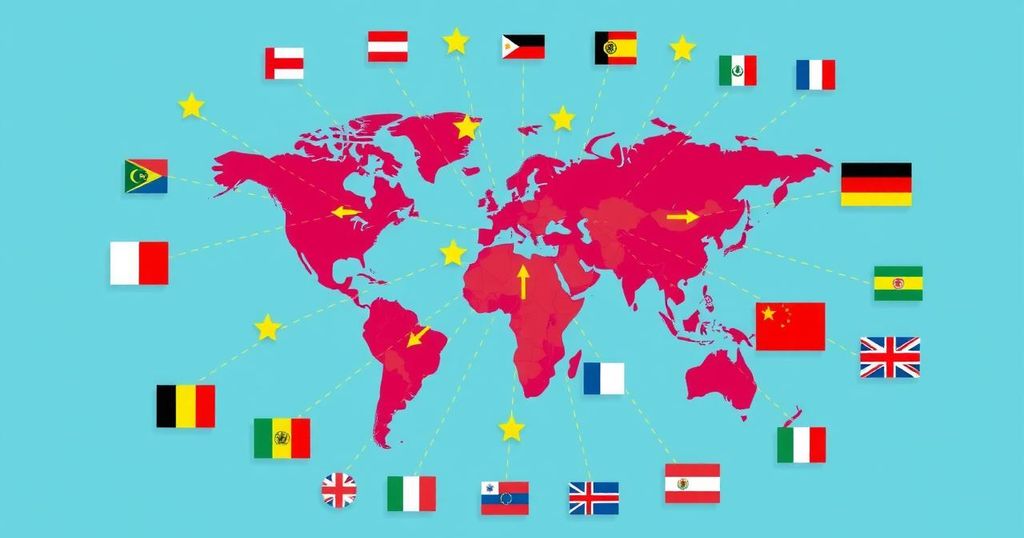Canada’s Response to U.S. Tariffs: A Watchful Global Perspective

Recent tariff disputes between the U.S. and Canada have intensified, with Canada imposing counter-tariffs on $20.8 billion of U.S. goods in response to Trump’s threats. This escalation has prompted Canadian officials to adopt a firmer stance while public opinion shifts towards confronting U.S. policies. Experts are divided on Canada’s approach—should it engage in brinkmanship or pursue diplomacy?
In the context of escalating trade tensions, the world, including India, is observing Canada’s strategies to counter the latest tariffs imposed by the United States. Canada has implemented retaliatory tariffs on approximately C$30 billion ($20.8 billion) of US goods in response to President Trump’s announcement of initially planned 50% tariffs on steel and aluminum, which were subsequently reduced to 25% following negotiations.
Canada’s Foreign Minister, Mélanie Joly, has cautioned other nations regarding the ramifications of Trump’s actions, stating that they may also be subjected to similar tariffs. The relationships between Canada and the U.S. have deteriorated despite Canadian officials’ efforts to foster dialogue and goodwill during visits to Trump’s estate and Washington, D.C.
Public sentiment in Canada reflects frustration, with many citizens demanding their leaders confront President Trump’s aggressive tariff policies. Notably, Manitoba Premier Wab Kinew, who previously advocated for diplomatic relations, has declared a shift in tone, evidenced by his removal of U.S.-produced alcohol from local stores and a public mockery of Trump’s signature style.
Conversely, other countries such as Mexico have adopted a more restrained approach, avoiding immediate retaliatory measures in light of their own diplomatic and trade challenges with the U.S. President. While Trump has commended Mexico’s President, Claudia Sheinbaum, for her handling of trade issues, he continues to criticize Canada’s Prime Minister, Justin Trudeau.
Experts are debating the efficacy of Canada’s approach, which oscillates between brinkmanship and diplomacy. David Collins, a professor of international trade law, suggests that Canada may need to urgently renegotiate the USMCA trade agreement, especially in light of the changing political landscape following Trudeau’s resignation announcement.
Economic analyst Kevin Milligan argues that Canada’s retaliatory actions have revealed weaknesses in Trump’s strategy regarding electricity trade, implying that pressure could yield better negotiation outcomes. As both sides reassess their positions, the future of U.S.-Canada trade relations remains uncertain.
The trade tensions between Canada and the United States have escalated significantly, with Canada responding assertively to Trump’s tariffs by implementing countermeasures. This situation has highlighted the need for Canada to reconsider its diplomatic strategies, as public sentiment shifts towards stronger opposition against U.S. policies. Experts weigh in on the effectiveness of aggressive tactics versus diplomatic engagement, suggesting that renegotiation of trade agreements may be crucial in moving forward.
Original Source: m.economictimes.com







